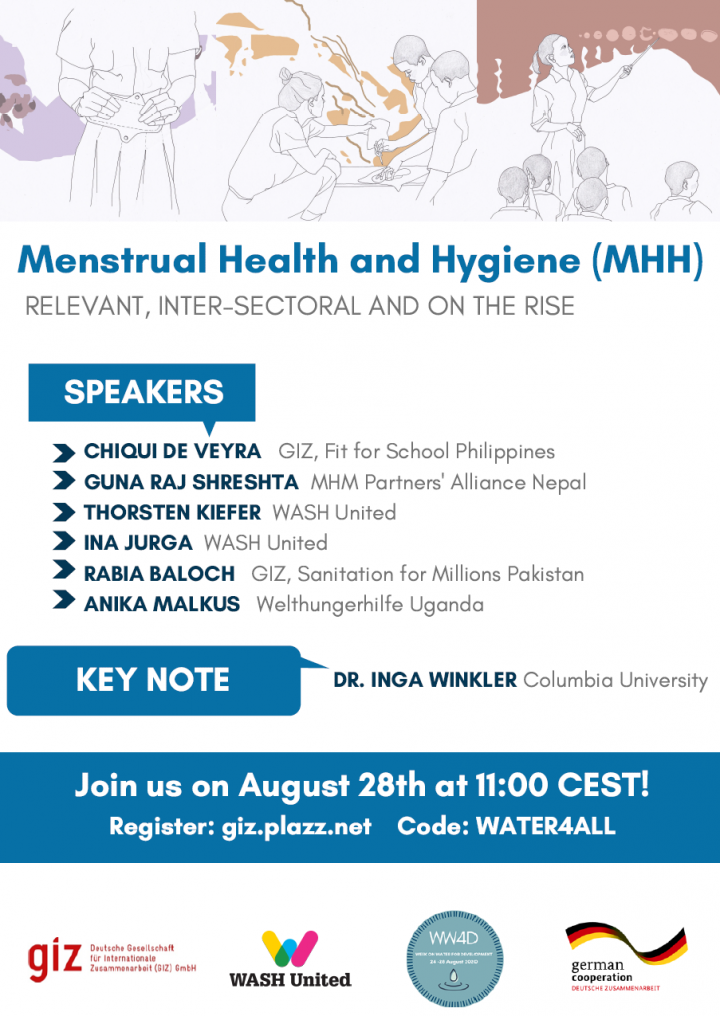Session Summary: Menstrual Health and Hygiene (MHH) - Relevant, Inter-sectoral and on the Rise Session hosted in the course of the 30th SuSanA Meeting and Week on Water for Development 2020 Various Authors (2020)
MHH contributes to gender equality, better education and employment, and the realization of sexual and reproductive health and rights. In this session progress and success stories of MHH globally and within the German Development Cooperation were presented and opportunities for sustaining and scaling the momentum were discussed.
The menstrual movement has made progress in the recent years, with the WASH sector providing an entry point. German organisations successfully addressed the issues of awareness and stigma (MH Day), education (WASH United, Fit for School, S4M), infrastructure (S4M, Fit for School) and products (Welthungerhilfe) at a scalable level.
It is essential to abolish the stigma. For example, through more inclusive language and programming (for all people who menstruate and in all settings) across sectors.
Bibliographic information
Various Authors (2020). Session Summary: Menstrual Health and Hygiene (MHH) - Relevant, Inter-sectoral and on the Rise Session hosted in the course of the 30th SuSanA Meeting and Week on Water for Development 2020 Deutsche Gesellschaft für Internationale Zusammenarbeit (GIZ) GmbH, Bonn, Germany
Filter / Tags
Public awareness, advocacy and civil society engagement (WG9)EducatorsPoliticians and local decision makersPractitionersFactsheets and policy briefsPresentationsVideos and webinar recordingsEnglishMenstrual Health and Hygiene (MHH)
External links
All presentations and resources from the 30th SuSanA Meeting

